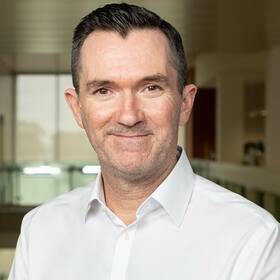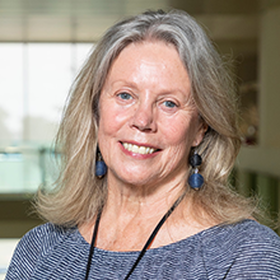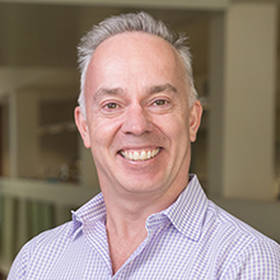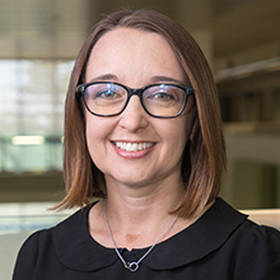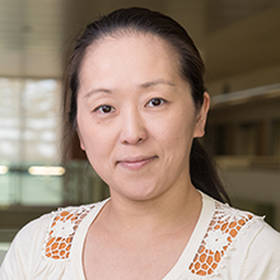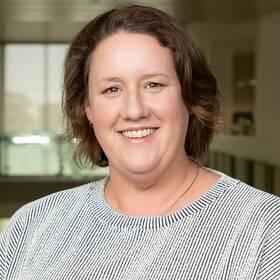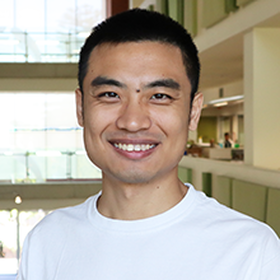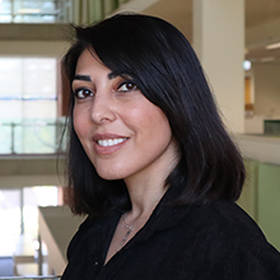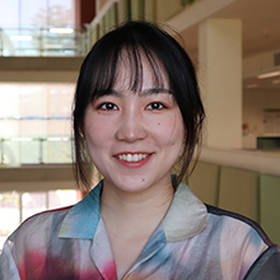- About
- People
- Projects
- Key Publications
- Funding
- Collaborations

The Solid Tumour Group, headed by Professor Tim Price, began work at The Queen Elizabeth Hospital in 2007 and moved to new laboratories in the Basil Hetzel Institute in 2009. In 2014, the group incorporated the newly established SAHMRI Colorectal Node, and now works on a comprehensive program in colorectal cancer spanning prevention, biology and treatment.
- Identification, development and clinical trial of new therapeutic agents for the treatment of colorectal cancer
- Development of new cancer biomarkers of drug resistance and therapeutic targets
- Further understanding of the molecular mechanisms underlying colorectal cancer
- Identification of risk factors in groups of under-recognised colorectal cancer patients
We welcome enquiries from students interested in completing research higher degrees or coursework with a research component.
Researchers
-

Professor Tim Price
Position: Lead Researcher
Group: Solid Tumour Group
Theme: Cancer
Email: [email protected]
-

Associate Professor Joanne Young
Position: Chief Medical Scientist
Group: Solid Tumour Group
Theme: Cancer
Phone: 0428 711 095
Email: [email protected]
Profile: View profile
Research Gate: Joanne Young
-

Dr Eric Smith
Position: Principal Medical Scientist
Group: Solid Tumour Group
Theme: Cancer
Email: [email protected]
Profile: View profile
UoA: Eric Smith
-

Dr Amanda Townsend
Position: Clinician
Group: Solid Tumour Group
Theme: Cancer
Email: [email protected]
-

-

Esme Jasko
Position: Clinical Research Nurse
Group: Solid Tumour Group
Theme: Cancer
Email: [email protected]
Students
-

Runhao Li
Position: Student
Group: Solid Tumour Group
Theme: Cancer
Email: [email protected]
Profile: View profile
UoA: Runhao Li
-

Sima Kianpour Rad
Position: Student
Group: Solid Tumour Group
Theme: Cancer
Email: [email protected]
Profile: View profile
-

Fangmeinuo (Mona) Wu
Position: Student
Group: Solid Tumour Group
Theme: Cancer
Email: [email protected]
Profile: View profile
Student Alumni
| Name | Degree | Awarded | Thesis title | Supervisors | Scholarship |
|---|---|---|---|---|---|
| Reger Mikaeel | PhD, University of Adelaide | 2022 | Towards an Understanding of the Growing Incidence of Colorectal Cancer and Appendiceal Neoplasms in Young Adults | Professor Tim Price, Associate Professor Joanne Young, Dr Eric Smith and Professor Bernd Wollnik (University of Göttingen, Germany) | The University of Adelaide International Wildcard Scholarship and a Hans-Jürgen & Marianne Ohff Research Grant |
| Yoko Tomita | PhD, University of Adelaide | 2021 | Anti-cancer effect of synthetic and plant-based inhibitors of aquaporin 1 in colon cancer | Dr Jenny Hardingham, Professor Andrea Yool and Professor Tim Price | The University of Adelaide Research Training Program Stipend |
| Maryam Nakhjavani | PhD, University of Adelaide. Dean's Commendation for Doctoral Thesis Excellence | 2021 | Ginsenoside Rg3 as a potential treatment for metastatic triple-negative breast cancer | Dr Jenny Hardingham and Dr Amanda Townsend | Adelaide Scholarship International (International Wildcard Scholarship), The University of Adelaide |
| Kenny Yeo | First Class Honours, University of Adelaide | 2020 | Cellular targets and mechanisms of action of bacopaside 1 and 2 in breast cancer | Dr Jenny Hardingham and Dr Eric Smith | The Hospital Research Foundation Honours Scholarship |
| James Clarke | First Class Honours, University of Adelaide | 2019 | Is aquaporin 1 expression a poor prognostic marker in colorectal cancer? | Dr Eric Smith, Dr Jenny Hardingham | The Hospital Research Foundation Honours Scholarship |
| Steven Ha | First Class Honours, University of Adelaide | 2019 | The identification of microRNAs predictive of response to therapeutic agents in colorectal cancer | Dr Jenny Hardingham, Dr Eric Smith | The Hospital Research Foundation Honours Scholarship |
| Michael Lucio De Ieso | PhD, University of Adelaide | 2019 | Pharmacological Modulation of Cancer Migration and Invasion Through Targeting AQP1 Ion and Water Channel Activity | Professor Andrea Yool, Dr Jenny Hardingham | Australian Postgraduate Award |
| Junwei LWang | Master of Biotechnology (Biomedical), High Distinction | 2019 | Single cell RNA Sequence Analysis reveals the heterogeneity of the colonic mesenchymal cells in inflammatory bowel disease | Pederson S, Smith E | |
| Shalini Sree Kumar | PhD, University of Adelaide | 2015 | Biomarkers of resistance to anti-EGFR in wild type KRAS/BRAF colorectal cancer cell lines | Dr Jenny Hardingham, Professor Tim Price | |
Research Projects suitable for Honours and Postgraduate research students
For more information about these projects please contact Dr Eric Smith.Investigation of circulating DNA mutations in colorectal cancer (CRC)
Circulating tumour-derived DNA (ctDNA) may be present in plasma samples from patients with CRC, and the concentration level has been inversely correlated with survival outcome. It’s thought the ctDNA is derived from circulating tumour cells (CTC) yet there are reports of cases in which ctDNA was detected but no CTC were detectable (Bettegowda et al., 2014), suggesting that tumour DNA could be released from tumour exosomes in the circulation. ctDNA from plasma (liquid biopsy) provides a means to analyse tumour mutations to enable more sensitive disease monitoring. This means that disease recurrence or progression would be detected at an earlier time-point than would be possible with CT/PET imaging. CTCs will also be identified in collaboration with Prof Thierry at Uni SA and correlated with ctDNA findings. Techniques include DNA isolation from plasma, digital droplet PCR, mutation or methylation analysis, statistical survival and correlative analyses.Role of aquaporins 1 and 5 in tumour angiogenesis in colon or breast cancer (2 projects)
Aquaporins (AQPs) are water channel proteins involved in cellular water flux, and implicated in migration, angiogenesis and metastasis in cancer. The drug discovery program in Professor Yool's lab has identified several drugs that modulate aquaporin channel activity. We have found that several of these drugs are effective in vitro at reducing migration and invasion of colon cancer cells and preventing angiogenesis (tumour blood vessel formation). We aim to investigate the efficacy of these drugs in inhibiting angiogenesis in vitro and in halting metastasis in pre-clinical mouse models of human colon or breast cancer. Our hypothesis is that tumour cells that lack AQP1 activity are unable to respond to hypoxia which drives angiogenesis. We will also establish a biobank of organoids cultured from metastatic breast biopsies for research work, in assessing the response to different novel therapeutic drugs in culture, and in characterising the mutational landscape and how that changes with developing resistance. A biobank of metastatic breast organoids is a much needed resource for future research which is currently lacking in this state. Techniques include cell culture, CRISPR gene knockout, RT-PCR, western blotting, functional assays of cell proliferation, invasion, migration, and angiogenesis and mouse models of human cancer.Determination of resistance biomarkers in tumour tissue from patients undergoing therapy with anti-VEGF
MicroRNA expression platform will be used in correlative studies on archival tissue to identify biomarkers of resistance to bevacizumab (anti-VEGF monoclonal antibody). Techniques will include DNA and RNA/microRNA isolation from tissue blocks, running microRNA profiles, bioinformatics, and statistical analysis.Within the SAHMRI Colorectal Node (based at the BHI), the South Australian Young Onset Colorectal Cancer Study (SAYO) is a hospital-based research program for identifying the causes and consequences of colorectal (bowel) cancer in young adults. The program has an ongoing registry for research participants and an associated database, with topics spanning genetics, pathology, and psychosocial aspects of this condition. The group consists of a research fellow, medical oncologist and hospital scientist. In addition, a network of collaborators contribute to research directions, analysis and outcomes of the project.
Research Projects suitable for Honours and Postgraduate Students
For more information about these projects please contact Associate Professor Joanne Young.
Early Onset Colorectal Cancer and Metabolic Syndrome
Our preliminary evidence suggests that the increase in incidence of colorectal (bowel) cancer in young adults may be related to the rising rate of metabolic syndrome components in the young adult population. In this study we will explore the overlap of genetic predispositions to both CRC and diabetes in young adults with pre-malignant polyps, or cancer. We will use pedigree analysis, next generation sequencing of the germline, and detailed epigenetic assays of colorectal tissue to identify markers of risk for CRC in the young adult population. It is our long-term objective to help identify at-risk young individuals in primary healthcare settings.
Medical and Psychosocial Aspects of Colorectal Cancer in Young Adults
Colorectal cancer (CRC or bowel cancer) is a common malignancy of older adults. However, over 1100 Australians under the age of 50 develop CRC each year, and the incidence of young onset disease has been rising in Australia and other Western countries during recent decades. Young adults with CRC suffer significant mortality and morbidity in the most productive time of their life. In this project, which would suit a psychology or nursing student, we will undertake a comprehensive study of the medical and psychosocial aspects of having CRC as a young adult. This will include the risk factors such as personal or family history of diabetes, family history of CRC, the diagnostic journey of the patient (since the majority of young patients present late in the course of their disease), and the life impacts post diagnosis on family and relationships, career and education, and physical and mental health.
A list of publications for the last financial year can be found here.
Hardingham JE, Grover P, Winter M, Hewett PJ, Price TJ, Thierry B. Detection and Clinical Significance of Circulating Tumor Cells in Colorectal Cancer—20 Years of Progress. Mol Med; 2015. 21 (Suppl 1): S25-S31.
Young JP, Win AK, Rosty C, Flight I, Roder D, Young GP, Frank O, Suthers GK, Hewett PJ, Ruszkiewicz A, Hauben E, Adelstein BA, Parry S, Townsend A, Hardingham JE, Price TJ. Rising incidence of early-onset colorectal cancer in Australia over two decades: report and review. J Gastroenterol Hepatol; 2015. 30(1): 6-13.
Price TJ, Peeters M, Kim TW, Li J, Cascinu S, Ruff P, Suresh AS, Thomas A, Tjulandin S, Zhang K, Murugappan S, Sidhu R . Panitumumab versus cetuximab in patients with chemotherapy-refractory wild-type KRAS exon 2 metastatic colorectal cancer (ASPECCT): a randomised, multicentre, open-label, non-inferiority phase 3 study. Lancet Oncol; 2014. 15(6): 569-79.
Price TJ, Hardingham JE, Lee CK, Weickhardt A, Townsend AR, Wrin JW, Chua A, Shivasami A, Cummins MM, Murone C, Tebbutt NC. Impact of KRAS and BRAF Gene Mutation Status on Outcomes From the Phase III AGITG MAX Trial of Capecitabine Alone or in Combination With Bevacizumab and Mitomycin in Advanced Colorectal Cancer. J Clin Oncol; 2011. 29(19): 2675-82.
Price TJ, Beeke C, Ullah S, Padbury R, Maddern G, Roder D, Townsend AR, Moore J, Roy A, Tomita Y, Karapetis C. Does the primary site of colorectal cancer impact outcomes for patients with metastatic disease?. Cancer; 2014. 121(6): 830-835.
Funding since 2010
| Chief Invesigators | Granting Body | Project Title | Total Grant Amount | Funding Period |
|---|---|---|---|---|
| Ramsay R, Worthley D, Heriot A, Narasimhan V, Tie J, Woods S, Price T, Graham T, Hewett P, Grandori C | NHMRC (#1156391) | From the Stone Age to the State of the Art - Multidimensional Precision Medicine for Peritoneal Colorectal Cancer | $1,399,877 | 2019 - 2023 |
| Symonds E, Young GP, Young JP | Cancer Australia (#1161720) | Evaluation of blood-based screening tests for colorectal neoplasia: from biomarker candidates to accurate and acceptable tests | $500,000 | 2019 - 2022 |
| Townsend A, Hardingham J, Tomita Y, Price T | The Hospital Research Foundation, Strategic Grant | Continuation of 'Preclinical investigation of the efficacy of novel aquaporin 1 inhibitors in preventing growth and metastasis of breast cancer' | $120,000 | 2019 - 2021 |
| Young J, Price TJ | The Hospital Research Foundation | Personal and family history of Type 2 Diabetes and Colorectal cancer risk in young adults | $30,000 | 2019 - 2020 |
| Price T, Holden C, Poprawski D, Roder D, Ratcliffe J, Turnbull D, Buckley E, Singhal N, Wichmann M | Cancer Council SA Beat Cancer | Does ageism prevail in access to multidisciplinary cancer care? | $134,700 | 2019 |
| Young J, Price T, Tomlinson I, Rosty C, Ruszkiewicz A, Schreiber A, Platell C, Hardingham J, Drew P, Smith E | Cancer Council SA | Metabolic Syndrome Components and Advanced Colorectal Neoplasia in Young Adults | $75,000 | 2018 |
| Price T, Young J | The Hospital Research Foundation, Leverage Funding | SA Young Onset colorectal polyps and cancer study | $30,000 | 2018 |
| Townsend A, Hardingham J, Tomita Y, Yool A, Price T, Evdokiou A | The Hospital Research Foundation, ABCR Elcombe Preclinical Project Grant | Preclinical investigation of the efficacy of novel aquaporin 1 inhibitors in preventing growth and metastasis of breast cancer | $255,000 | 2017 - 2019 |
| Yool A, Heng S, Hardingham JE | Australian Research Council (DP160104641) Discovery Grant | Properties enabling rapid cell migration by aquaporin-1 channel expression | $350,000 | 2016 - 2019 |
| Townsend AR, Hardingham, TJ Price TJ, Gordon L, Lee C | Cancer Council SA/SAHMRI Beat Cancer | Genome-wide association study of single nucleotide polymorphisms as predictive biomarkers for sensitivity to anti-EGFR antibody therapy for metastatic colorectal cancer with wild-type RAS | $75,000 | 2016 |
| Maddern G, Price T, Young J, Hewett P, Hardingham J, Worthley D, White D, Mulligan D | SAHMRI/BEAT Cancer/The Hospital Research Foundation | Individualised risk assessment and therapeutic interventional for colorectal cancer in the South Australian population | $750,000 | 2014 - 2019 |
| Price TJ, Townsend AR, Hardingham JE (and 20 others) | SAHMRI ACRF grant | ACRF Innovative Cancer Imaging and Therapeutics Facility | $1,800,000 | awarded November 2013 |
| Price TJ, Hardingham JE, Bruhn M, Townsend AR, Wrin J | Roche Australia | Correlation of extended RAS and PIK3CA gene mutation status with outcomes from the Phase III AGITG MAX involving capecitabine alone or in combination with bevacizumab plus or minus mitomycin C in advanced colorectal cancer | $30,000 | 2014 |
| Grover PK, Hardingham JE, Cummins A | SAHMRI – The Cancer Council of South Australia. (Grant #1029851) | Investigation of circulating cancer stem cells in the blood of patients with colon cancer as a cause of secondary spread to the liver | $100,000 | 2012 |
| Townsend AR, Hardingham JE, Price TJ, Tebbutt N | SAHMRI – The Cancer Council of South Australia. (Grant #1028595) | Impact of the activated EGFR-AKT-mTOR signalling pathway on prognosis and tumour resistance to anti-angiogenic targeted therapy for metastatic colorectal cancer | $92,678 | 2012 |
| Hardingham JE, Townsend AR, Price TJ | Oncology research support Scheme A | Identification of biomarkers of resistance to bevacizumab therapy. | $20,000 | 2011 |
| Townsend AR, Hardingham JE, Price TJ | Amgen | Phase II study of second line therapy with Irinotecan, Panitumumab and Everolimus in metastatic colorectal cancer with KRAS wild type | $100,000 | 2009 - 2010 |
| Price TJ et al. | Cancer Australia | PETACC 6 trial, neoadjuvant chemotherapy for T3/T4 rectal carcinoma | $475,000 | 2008 - 2010 |
Please also refer to page 21 of the BHI Research Report 2019.
| Collaborator | Position | Institution | City | Country |
|---|---|---|---|---|
| Professor Chris O’Callaghan | NCIC Clinical Trials Group | Toronto | Canada | |
| Associate Professor Geoff Liu | Ontario Cancer Institute, Princess Margaret Hospital | Toronto | Canada | |
| Associate Professor Susan Parry | NZ Familial GI Cancer Service, Auckland City Hospital | Auckland | New Zealand | |
| Associate Professor Niall Tebbutt | Austin Health | Melbourne | Australia | |
| Dr Chee K Lee | Research fellow | NHMRC Clinical Trials Centre | Sydney | Australia |
| Dr Lavinia Gordon | Bioinformatics, AGRF | Melbourne | Australia | |
| Dr Aung Ko Win | University of Melbourne | Melbourne | Australia | |
| Associate Professor Christophe Rosty | Envoi Pathologists | Brisbane | Australia | |
| Professor Andrea Yool | Head | Physiology, School of Medicine, University of Adelaide | Adelaide | Australia |
| Mr P Hewett | Head | Colorectal Surgical Unit, Department of Surgery, The Queen Elizabeth Hospital | Adelaide | Australia |
| Mr David Rodda | Colorectal Surgical Unit, Department of Surgery, The Queen Elizabeth Hospital | Adelaide | Australia | |
| Mr Darren Tonkin | Colorectal Surgical Unit, Department of Surgery, The Queen Elizabeth Hospital | Adelaide | Australia | |
| Mr Shanthan Ganesh | Colorectal Surgical Unit, Department of Surgery, The Queen Elizabeth Hospital | Adelaide | Australia | |
| Dr Dan Worthley | The Queen Elizabeth Hospital & University of Adelaide | Adelaide | Australia | |
| Dr Ilmars Lidums | The Queen Elizabeth Hospital | Adelaide | Australia | |
| Associate Professor Benjamin Thierry | Ian Wark Research Institute, University of South Australia | Adelaide | Australia | |
| Associate Professor Andrew Ruszkiewicz | SA Pathology | Adelaide | Australia | |
| Dr Oliver Frank | University of Adelaide | Adelaide | Australia | |
| Professor David Roder | University of South Australia | Adelaide | Australia | |
| Professor Graeme Young | Flinders University | Adelaide | Australia | |
| Dr Ingrid Flight | Flinders University | Adelaide | Australia | |
| Dr Stephanie Wong | The Queen Elizabeth Hospital | Adelaide | Australia | |
| Dr Sina Vatandoust | Flinders Medical Centre | Adelaide | Australia | |
| Dr Nicola Poplawski | Womens and Childrens Hospital | Adelaide | Australia | |
| Professor Hamish Scott | SA Pathology | Adelaide | Australia | |

